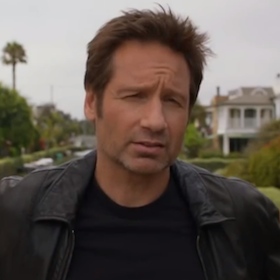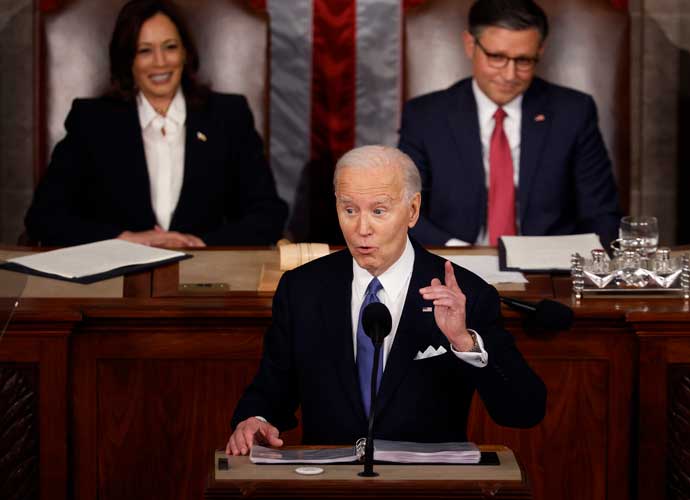'Californication: The Final Season' DVD Review: Lack Of Special Features Does Little To Redeem This Last Season

2/5
Californication slouches into its final twelve episodes long after the show stopped being worth watching. When you look at it, the only relevant seasons would be the first and the fourth; the last episode of the third season was important, as was the last episode of this seventh season, yet everything besides that just feels like padding – redundant and growingly unfunny padding.
At its best, Tom Kapinos’ Californication was a fun combination of sophomoric humor and realistic adults trying to figure their lives out while trying to raise their adolescent daughter. Karen (Natascha McElhone) believed in happy endings as much as Hank (David Duchovny), but Karen was often too unrealistic and Hank was too self-destructive and full of self-hate. The sex and the jokes kept the show from getting too dark, but as much as a spectacle as some of the stunts were, there was an undeniable form of enjoyment to be had from it. The more the series wore on, the more outlandish the jokes and the characters became. It became harder and harder to come up with a new reason why Hank and Karen were breaking up, only to (usually) get back together by the end of the season. Hank, meanwhile, stopped hating himself and merely became a man-child with a drinking problem nobody really referenced anymore. He was a middle-aged frat boy with several bestsellers. At least he’s not Tucker Max, I guess.
This final season is the greatest example of that lost potential. Here, Hank tries working as a writer on a television series. One would think Kapinos would use this, as a way to satirize the business, as he did with the film industry in season 1. Only he doesn’t. What little bits of commentary there are can be seen only with a microscope, the rest is just more padding and irrelevance that overstays its welcome and then peters out without climax.
In an attempt to inject something new, Kapinos wanted to deal with the idea of consequences, something Hank has rarely dealt with in the show. It was well established that Hank and Karen were seeing other people when they first got together, and now Hank’s old girlfriend is in town and it turns out she had been pregnant. Their spawn, Levon (Oliver Cooper), is now eighteen and severely socially dense. The jokes are as predictable as you would think and as simple and easy as you would expect from a Chuck Lorre canned-laughter sitcom. There are no real explosions of emotion that come with this revelation. It’s as if Karen had somehow become aware of her own fictionality and realized now was the point in the season where she and Hank hit a rough patch and she breaks up with him, only to be reunited in the last minutes of the final episode.
What further happens in the seventh season is the total lack of Becca (Madeleine Martin), Hank and Karen’s daughter. David Duchovny said it was the relationship between Hank and Becca that attracted him to the series. In this final season, Becca is in the penultimate episode only, and appears in the finale in a dream sequence. She’s getting married in New York in a few weeks and wants her parents there. Is she still with the guy from last season that she went on the trip with or someone new? And whatever happened to her boyfriend Damian from season 2? Either way, the questions aren’t answered. This character that we’ve watched for (roughly) seven seasons is getting married and we don’t actually know to whom.
To be fair, Becca’s presence does what it usually does: it grounds her parents and makes them realize they’re supposed to be the adults. Unfortunately, Levon is present throughout much of this discussion and displays his personality disorders to distract everyone from what’s going on.
It’s the final two episodes here that are actually important, story and character-wise, despite the stupidity pervading everything around it. Most of everything is tied up in the end, yet affected with enough Elton John to make you think it’s poetic. Hank, on a plane at the last minute, makes a final plea to Karen, who is the love of his life. He does this roughly twice a season so it’s really pointless, but the writing in most of this speech is above average and their minor reconciliation at the end is the last image in the show. If anything, this undermines the idea of consequences that Kapinos had tried to establish this season, but he didn’t establish it well, so I guess the ending makes its own sense in that way. What is supposed to be bittersweet ends up coming off ridiculous — we can’t help but resent Hank and Karen for once again giving it one last try when each and every attempt has ended so poorly.
The special features are worse than usual, even by Showtime standards. Given that this season was rushed to DVD (the season ended all of ten minutes ago) there was apparently no time to record commentaries or shoot a featurette saying goodbye or anything like that. We’re given access, instead, to the first few episodes from season 1 of Ray Donovan (season 2 is airing now) and Penny Dreadful (you can do all of these things Showtime on Demand anyway), and an access code so we can watch The Affair a week before it comes out (again, you can do this on Showtime on Demand).
Even for fans of the series, this still wouldn’t count as necessary viewing. The relationship between Hank and Karen ends exactly the way we thought it would—despite common sense—and the rest is needless banter and subplots that go nowhere. If you need to see how this happens, just watch the last two episodes and save yourself the headache.
RELATED ARTICLES
Get the most-revealing celebrity conversations with the uInterview podcast!







Leave a comment